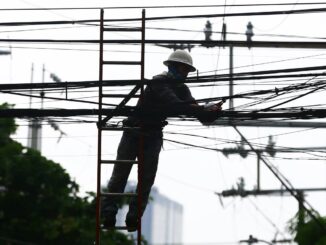
A NEW policy signed on Monday is expected to further improve the quality of health care services being provided to persons deprived of liberty (PDLs), the Bureau of Corrections (BuCor) said.
BuCor Director General Gregorio Pio Catapang Jr. said that the National Policy on Promotion and Protection of Health in Jails, Prisons, Custodial Facilities, and Other Places of Detention will guarantee that PDLs are provided with 24/7 health care services, included in the National Health Insurance Program and granted eligibility to PhilHealth packages pursuant to Republic Act 11223 otherwise known as Universal Health Care Act.
Under this policy, the BuCor and allied agencies such as the Bureau of Jail Management and Penology, Bureau of Immigration, Philippine National Police, Provincial Jails, and National Bureau of Investigation shall allocate funds and resources to ensure the strategic directions in the implementation of policies, plans, and programs for health and development in places of detention.
BuCor Director General Gregorio Pio Catapang Jr. File Photo
“This endeavor will further improve the quality of health care services being provided by BuCor to our PDLs through the Directorate for Health and Welfare Services,” Catapang said as he boasted that the New Bilibid Prison Hospital is one of the satellite treatment centers of tuberculosis in the National Capital Region.
Other services that will be provided to PDLs are vaccination for various illnesses, ophthalmic-related surgeries, various feeding programs for senior citizens, semiannual medical and dental missions, free medicines, and free basic laboratory tests.
Catapang said the top causes of PDL mortality are myocardial infarction, pneumonia, cerebrovascular accident, acute respiratory failure and congestive heart failure.
Health Secretary Teodoro Herbosa said that the new policy would “strengthen the leadership of the DoH in the protection and promotion of health in all settings, such as places of detention, and to support the functions of various offices in the continuum of care for persons deprived of liberty through a governance structure with the public safety, security and justice sectors.”
A 2019 study showed that the Philippines had the most overcrowded prison system in the world.
DoH spokesman Albert Domingo said that prisoners commonly suffer from skin diseases, respiratory tract illnesses and allergies.
Meanwhile, the Philippine Health Insurance Corp. vowed to facilitate the prisoners’ registration and inform them of their rights and benefits.





Be the first to comment